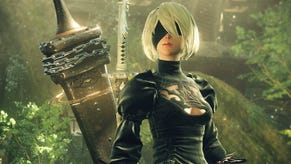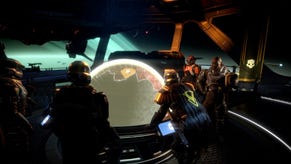Bethesda And Notch's Scrolls-Off Explained
While Minecraft creator Marcus 'Notch' Persson remains an avowed fan of Bethesda games, the legal argy-bargy between the Elder Documents publisher and Notch's company Mojang over its forthcoming second game 'Scrolls' doesn't look like dying down any time soon. In fact, the big B has stepped up its efforts, announcing its intention to sue Mojang in a Swedish court, as well as a demand for money. In a blog post explaining a little of his side of things, Notch reveals that this all happened shortly after Mojang tried to trademark 'Scrolls', which rang alarm bells for the rights-holders of The Elder Rolled-Up Papers. Common sense has had us all thinking the situation is simply ridiculous - one word within a title hardly equals the same title, right?
Well, it may not be that simple. In other words- Bethesda might well have a case, regardless of how you might feel about it.
Games lawyer and friend of RPS Jas Purewal writes on his Gamer/Law blog has taken a long look at the situation and how it relates to trademark law, feeling that it boils down to these two key arguments:
(1) Is Mojang selling identical or similar goods/services to Bethesda in an identical/similar business?
(2) Is there a likelihood of public confusion between Scrolls and The Elder Scrolls?
It's the second point that might be the lychpin of any action (or settlement), he claims, but there's no cut and dried answer to it. "On the one hand, clearly The Elder Scrolls IS the foremost game series to use the word 'Scrolls' and a consumer may therefore think that the Mojang game Scrolls is part of the Elder Scrolls series. On the other hand, the Mojang game Scrolls is reportedly going to be a different game to The Elder Scrolls series and Mojang itself has a good brand profile among gamers, making it arguably less likely that its game would be connected with Bethesda. Then again, if you just look at the games themselves, both are fantasy themed (one first person RPG, the other a card playing game with RPG elements) so is there a risk of confusion there? As you can see, it's far from a straightforward yes/no answer."
Common sense and the product familiarity will have games-knowledgeable folk such as you and I convinced there shouldn't be cause for concern, but as Murder Dog IV tries to prove, the law's all too capable of interpreting things very, very differently.
Also in the mix is that "There's one more key aspect about trade marks you need to know: once you have one, you need to enforce it." Otherwise, as was the case with Hoover, you might end up losing it. Bethesda may not even want to do this, especially as suing indie's golden boy is hardly the way to earn gamers' love - but they may feel they have to.
So, Gamer/Law feels, "Mojang has three options at present:
(1) Fight the claim
(2) Capitulate and change the game name
(3) Agree to coexist with Bethesda (ie both use the name Scrolls, potentially in return for Mojang paying Bethesda)."
2 or 3 is apparently most likely due to the costs of 1, for both sides. Neither of them seem fair, of course - but that's because 'fair' pretty much doesn't come into matters of trademarking. If it did, we'd probably never have heard of Tim Langdell.
So, this story probably isn't a just a matter of crossed wires or one over-zealous lawyer, and instead could hang around for quite some time. Especially as the ongoing fight with Interplay suggests Bethesda isn't exactly afraid of long and bitter legal fights regarding what it feels are its trademarks.
Incidentally, do read the entirety of Jas Purewal's post about all this - it's highly illuminating regarding matters of taking out, enforcing and battling trademarks.









